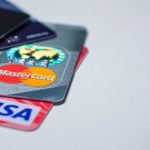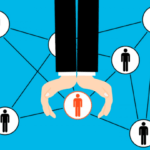Finding yourself lagging on your financial goals is nothing to be ashamed of. For beginners and seasoned people alike, staying within a budget can turn out to be complicated. Since a part of expenditure depends on factors we can’t control, such as inflation, we can’t do anything but feel helpless and go with the flow.

But there are some areas you can pay special attention to, for scrimping and saving a wee bit more, and reinforcing your financial position. Knowingly or unknowingly, all of us incur unnecessary expenditures. This can happen due to a general lack of knowledge about how we end up paying more than required or how we can save money on a transaction.
The issue might seem trivial, but can have consequences such as you failing to accumulate as many savings as you wanted to, or perhaps your credit card bill only seems to swell with time and you’re finding it increasingly difficult to cough up the amount.
For your benefit, we’ve collated a list of the five things which can lead to excessive expenditure, along with ways to avoid them. Being smart and not miserly is the key to staying afloat financially. These points will come in handy to achieve your saving goals and slash that credit card bill to restore your credit rating.
Using Your Credit Card to Withdraw Cash
This is a common mistake made by many, mostly new cardholders. Credit cards are named “credit” cards because their primary function is to lend you money with interest. So if you think that you can use your credit card to withdraw instant cash, you might not be wrong, but you are heading for some deep financial trouble.
Credit schemes don’t have a hard and fast rule precluding a client from using their credit card to withdraw instant money. There might be a dire need to do so, and it can happen. However, this withdrawal is not counted as a withdrawal, instead of as cash “advances” taken out against the credit card limit.
Why should you steer away from them? Other than the fact that they hurt your credit score, cash advances are accompanied by heavy interest rates. These interest rates are higher than normal credit card interest rates.
To further add fuel to the proverbial fire, the usual interest-free grace period you’re provided on your credit card usage doesn’t apply here. The interest starts accumulating the very minute you take a cash advance.
The key to avoiding such a situation is to have a functional checking account, and an activated debit card on your person always.
Swiping the Credit Card When You Have Cash
Well, despite this one being a no-brainer, many are guilty of committing it. You put your hand inside your pocket and feel both the cold plastic of the card and the papery sinews of bankrolls.
Card it is, you say. Convenience, reward point, benefits – the rationalization can go on forever.
But, the same purchase that you could’ve completed with cash, without any extra interest rate, now carries with itself the baggage of accumulating interest. Small, trifling purchases account for large credit bills, and this is only realized when the bill is sent to your address.
A piece of advice to stick with cash payments would be counter-productive to our cause. Credit card schemes carry a ton of rewards and benefits that you can take advantage of. So we say that you keep yourself up-to-date with all the rewards, and do a quick, back-of-the-napkin cost-benefit analysis to gauge what works best for you.
Spending Money You’re Not Entitled To (Yet)
We understand that credit has become an integral part of the modern world. Almost all big purchases, such as houses, vehicles, and sometimes even special machinery, are bought with external finance.
However, you need good judgment to know when to stop taking loans for funding your purchases. You might have your heart set on a particular product, but it’s out of your reach, financially speaking.
Think hard before taking out a loan for that purchase. It might provide you with a momentary rush of excitement, but there’s the hefty baggage of payment that this rush carries.
Falling In the Abyss of Informal Debt
A poor credit score can have drastic consequences. Sometimes, in times of need, you might see that several formal institutions of credit, such as banks and financing firms, straight away close their doors on your face. You might find yourself helpless and dejected and turn to informal lenders.
Beware, they’re called loan sharks for a reason. Informal credit is provided at exorbitant interest rates. And if you’re a regular defaulter, your reputation precedes you, and the rates are bumped up even higher. But since you have nowhere else to turn to, you cave in.
But there are formal credit schemes that are designed for people with bad credit histories. You can opt for payday loans or bad credit loans from several registered creditors. The interest rates are high, granted, but they not as high that you find yourself out of money for everything else.
Sticking to Minimum Payments with Credit Cards
As the name suggests, there’s a minimum payment that has to be honoured at the end of every credit card billing cycle. Generally, the amount is a small percentage of the total bill.
Sticking to minimum payments for a huge credit card bill can compound your bill very quickly. The amount unpaid gets transferred to the next billing cycle, and more interest is piled on.
It is advised that if you have the means, pay your credit card dues on the whole for as long as you can. Falling in the credit card debt trap is the last thing you’d want.
In Conclusion
Just because others don’t cry out in the open about financial issues that does not mean that it is not there. Money can be a tough thing to handle, and it’s only natural to fall behind your financial goals from time to time. There are certain habits you can chuck, and some tips you can follow to spend money smartly and wisely.
Join 25,000+ smart readers—don’t miss out!







